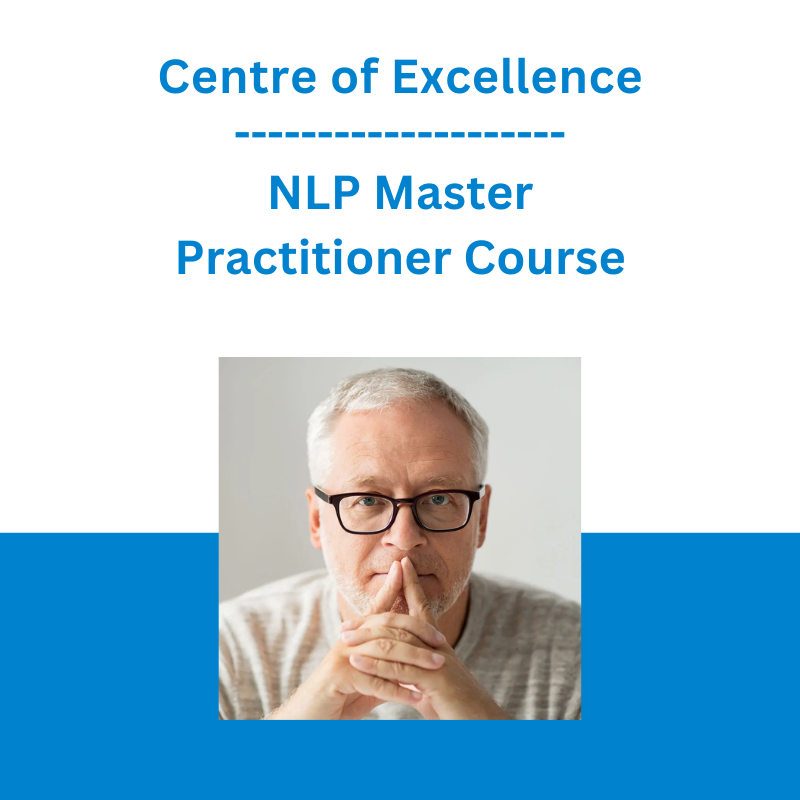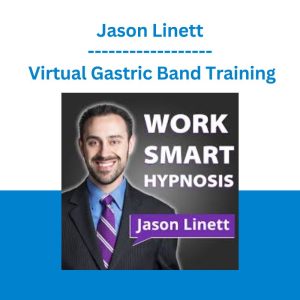*** Proof of Product ***
Exploring the Essential Features of “Centre of Excellence – NLP Master Practitioner Course”
What Will You Learn?
Learn advanced NLP techniques that can be used to transform not only your own life, but the lives of those around you. Whether this is in business, sport or in a coaching capacity, the NLP Master Practitioner course will take your NLP training to another level.
Psychodynamics helps to explain the mind’s unconscious desires and beliefs and therefore plays a big role in NLP. The course introduces the theories behind psychodynamics and expands on how the brain works to formulate beliefs and the drives of the subconscious. With a better understanding of how the mind works, the course goes on to explain the framework of NLP and how it can be used to change beliefs and habits in a safe environment.
Building on your knowledge of psychological development, the NLP Master Practitioner Training Course will guide you through Erik Erickson’s “Stages of Human Development” as well as Maslow’s “Hierarchy of Needs”. You’ll look at how human thinking can be flawed, how to use cognitive restructuring to change thought patterns, and how the brain processes stress and anxiety.
One of the most important aspects of working with clients as an NLP Coach is building a good rapport with your clients. The course talks you though how to do this using both verbal and non-verbal techniques, with conversational hypnosis, advanced language patterns and empathetic listening techniques all covered, along with an outline of the four-stages of the counselling relationship.
As a species, we thrive on stories, whether in a song, poem, book or film, but their power is just applicable as a therapeutic tool. The NLP Master Practitioner Course explains how stories, and more specifically, metaphors, can help a client come to terms with and embrace change. You’ll learn how to create metaphors specific to your client’s needs, and be provided with examples of metaphors used for common problems, such as trying to quit smoking or lose weight. You’ll also learn how we structure our experiences through what is known as the “VAK Model”, how the model characterises each type of person, and how Gestalt Therapy can be used to help a client to develop a greater awareness of their thoughts, emotions, perceptions and understandings.
While the standard progressive relaxation form of hypnotic induction will work on almost everyone, it can be time-consuming. The NLP Master Practitioner Course guides you through several rapid induction techniques that will help speed up the process and give you more time to work with your client. Delving deeper you will discover the three states of the mind: Stress, Flow and Default Mode Network (DMN).
NLP is based on the idea that our ability to communicate is affected by our mental “filters”. NLP Meta Programs are one example of mental filters and are explained in the course, along with explanations of the 6 NLP presuppositions and the 4 pillars of NLP, and how keeping these in mind can help your work with clients. You’ll learn how to use NLP perception to help clients achieve success, use “Slight of Mouth” patterns in persuasion, how to change beliefs with covert hypnosis, and how to use the “Milton Model” to work with resistant clients and facilitate change.
As well as NLP’s practical theories, you will also go deeper into the purely theoretical side of the practice. The course explores quantum theory in NLP, humanistic neuro-linguistic psychology and its 3 basic presuppositions, and the multi-dimensional aspect of our thought processes and how that is represented through our language.
To advance your capabilities, in aiding your clients or yourself, the NLP Master Practitioner Course teaches you how to use, analyse and adjust strategies you have put in place and walks you through using the “7-Stage RESOLVE Model” to organise strategies.
Coaching is often confused with counselling but the two offer very different approaches and outcomes. The course explains the differences between the two and guides you through the basics of coaching and the skills you will need to be an effective NLP coach. You’ll learn about the “Pillars of Life” which outlines the various areas of our lives and the “Wheel of Life Exercise”, which highlights the areas that need attention, and the “Cartesian Coordinate Questions”, which will help your clients gain new perspectives and understanding of what inspires and blocks them when making decisions.
“Timeline Coaching” is an important NLP technique to master. It allows you to aid clients in rewriting their past and pre-writing their future, change meanings and associations of past bad experiences as well as installing empowering beliefs for the future. The NLP Master Practitioner Course gives an in-depth explanation of NLP timelines and the various ways you can use the technique to help a client reach their desired goals.
The “Meta Model” is covered in the course. This coaching tool helps you get to the root core of an issue, really understand someone’s viewpoint or model of the world, and gain insight into someone else’s way of thinking. The course also touches on behavioural modelling – observing and recreating successful behaviours.
Course Syllabus
What will I learn on the course?
Module 1 – Psychodynamics: Consciousness and Beliefs
10 parts
Introduction
Part 1: Psychodynamics
Part 2: The Formation of Beliefs – How the Brain Really Works
Part 3: Short-Term Versus Long-Term Memory
Part 4: The Gut-Brain Connection
Part 5: Habits and Beliefs with NLP
Part 6: Changing Beliefs With NLP – How to Get Unstuck
Test Your Knowledge
Key Learning Points Exercise
Module 1 Assessment
Module 2 – Psychological Levels of Development
8 parts
Part 1: Erickson’s Stages of Human Development
Part 2: Maslow’s Hierarchy of Needs
Part 3: Why Our Thinking May Be Flawed
Part 4: Cognitive Restructuring
Part 5: The Effects of Stress
Test Your Knowledge
Key Learning Points Exercise
Module 2 Assessment
Module 3 – Building Rapport
9 parts
Part 1: Building Rapport with Your Client
Part 2: Five Key Ingredients to Building Rapport
Part 3: NLP Submodalities
Part 4: Four Stages of the Counselling Relationship
Part 5: Cultural Diversity
Part 6: Questioning Techniques
Test Your Knowledge
Key Learning Points Exercise
Module 3 Assessment
Module 4 – Metaphoric Intervention
9 parts
Part 1: How to Destroy Resistance with Stories
Part 2: The Power of Belief
Part 3: Building Metaphors
Part 4: Metaphors for Common Problems
Part 5: The Twelve States of Attention
Part 6: Gestalt Therapy
Test Your Knowledge
Key Learning Points Exercise
Module 4 Assessment
Module 5 – Radical Transformation
10 parts
Part 1: Rapid Induction Techniques
Part 2: Rapid Eye De-Focus Induction
Part 3: Pattern Breaking Inductions
Part 4: The Default Mode Network and Stress Management
Part 5: The Three States of Mind
Part 6: NLP Meta Programs
Part 7: NLP Presuppositions
Test Your Knowledge
Key Learning Points Exercise
Module 5 Assessment
Module 6 – Quantum Linguistics: How to Change Your Mind
11 parts
Part 1: Quantum Theory in NLP
Part 2: Humanistic Neuro-Linguistic Psychology
Part 3: How Perceptions are Formed
Part 4: Quantum Linguistics and Hierarchy of Ideas
Part 5: Sleight of Mouth Patterns
Part 6: Change Beliefs in Minutes, Conversationally
Part 7: The 4-Stage Hypnotic Protocol
Part 8: Signs of Trance
Test Your Knowledge
Key Learning Points Exercise
Module 6 Assessment
Module 7 – Eliciting and Utilising Strategies
7 parts
Part 1: VAK Review
Part 2: How to Create Designer Swish Patterns
Part 3: Learn How to Elicit and Utilise Strategies
Part 4: The RESOLVE Model to Change Strategies
Test Your Knowledge
Key Learning Points Exercise
Module 7 Assessment
Module 8 – NLP Coaching Skills
9 parts
Part 1: Basis of Coaching
Part 2: New Code NLP and Coaching
Part 3: Counselling Versus Coaching
Part 4: Pillars of Life
Part 5: Wheel of Life
Part 6: Cartesian Coordinate Questions
Test Your Knowledge
Key Learning Points Exercise
Module 8 Assessment
Module 9 – Mastering Timeline Coaching
9 parts
Part 1: Refine Your Existing Timeline Coaching Skills
Part 2: Timeline: Changing Personal History
Part 3: Working with Resistant Clients – The Milton Model
Part 4: The Meta Model
Part 5: Advanced Behavioural Modelling
Test Your Knowledge
Key Learning Points Exercise
Conclusion
Module 9 Assessment
Who Would Benefit from This Course?
Covering advanced NLP theories and techniques, the NLP Master Practitioner Course is best taken by those who have first studied our NLP Foundation Skills Diploma and NLP Practitioner courses or equivalent courses elsewhere, to fully benefit from what the course has to offer. Current practitioners or coaches looking to further their understanding of NLP and utilise advanced techniques in their own lives or with clients will also benefit greatly from studying this course.
Accreditations
The NLP Master Practitioner Course will take you up to 200 hours to complete, working from home. There is no time limit for completing this course, it can be studied in your own time at your own pace.
This Course is fully accredited by the IANLPC (International Association of NLP Coaches).
The Quality Licence Scheme is part of the Skills and Education Group, a charitable organisation that unites education and skills-orientated organisations that share similar values and objectives. With more than 100 years of collective experience, the Skills and Education Group’s strategic partnerships create opportunities to inform, influence and represent the wider education and skills sector.
The Skills and Education Group also includes two nationally recognised awarding organisations; Skills and Education Group Awards and Skills and Education Group Access. Through their awarding organisations they have developed a reputation for providing high-quality qualifications and assessments for the education and skills sector. They are committed to helping employers, organisations and learners cultivate the relevant skills for learning, skills for employment, and skills for life.
Their knowledge and experience of working within the awarding sector enables them to work with training providers, through the Quality Licence Scheme, to help them develop high-quality courses and/or training programmes for the non-regulated market.
Please see the full list of alternative group-buy courses available here: https://lunacourse.com/shop/










 Jesse Livermore Trading System - Joe Marwood
Jesse Livermore Trading System - Joe Marwood  Toshko Raychev - Profit System + ITF Assistant
Toshko Raychev - Profit System + ITF Assistant  George Fontanills & Tom Gentile - Optionetics 6 DVD Series Home Study Course (Digital Download)
George Fontanills & Tom Gentile - Optionetics 6 DVD Series Home Study Course (Digital Download)  Sovereign Man Confidential - Renunciation Video
Sovereign Man Confidential - Renunciation Video  Julie Stoian & Cathy Olson - Launch Gorgeous - Funnel Gorgeous Bundle
Julie Stoian & Cathy Olson - Launch Gorgeous - Funnel Gorgeous Bundle  The Daily Traders – Exclusive Trading Mentorship Group
The Daily Traders – Exclusive Trading Mentorship Group  Chris Capre - Advanced Price Action Ongoing Training & Webinars
Chris Capre - Advanced Price Action Ongoing Training & Webinars  Money Miracle - George Angell - Use Other Peoples Money To Make You Rich
Money Miracle - George Angell - Use Other Peoples Money To Make You Rich  Greg Loehr - Advanced Option Trading With Broken Wing Butterflies
Greg Loehr - Advanced Option Trading With Broken Wing Butterflies  Jason Linett - Virtual Gastric Band Training
Jason Linett - Virtual Gastric Band Training  Atlas API Training - API 570 Exam Prep Training Course
Atlas API Training - API 570 Exam Prep Training Course  Matthew Kratter - Trader University
Matthew Kratter - Trader University